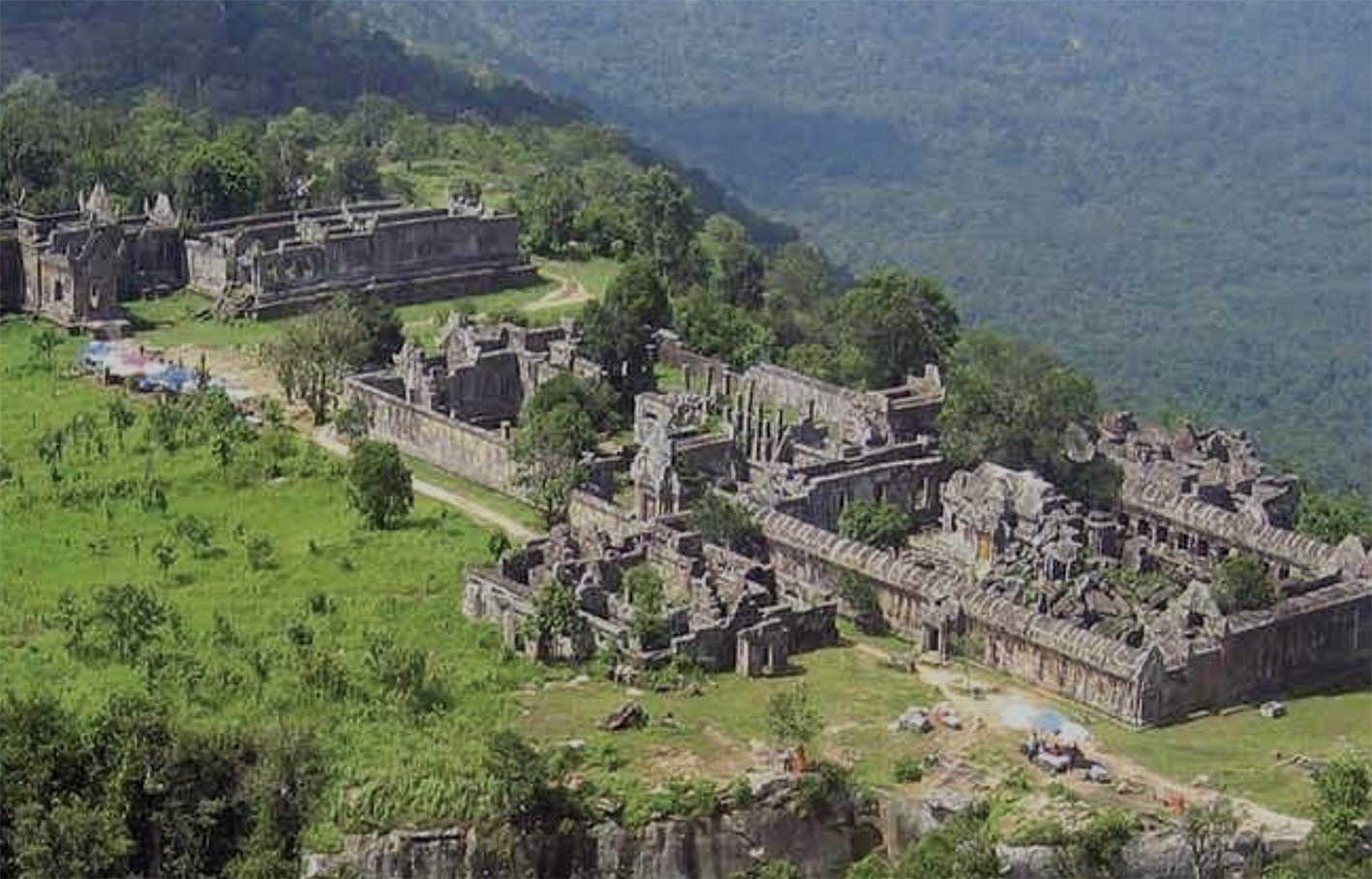Politics
Ownership Dispute Over Prasat Preah Vihear Temple Escalates

The ownership of the ancient temple Prasat Preah Vihear, known as Phra Viharn in Thailand, has become a contentious issue between Cambodia and Thailand. This UNESCO World Heritage site, located on the summit of the Dang Raek escarpment, has been at the center of a long-standing dispute that reflects the historical tensions between the two nations. The temple, built in the early 11th century during the reign of **King Suryvarman I**, symbolizes not only architectural grandeur but also the cultural heritage and religious significance of the Angkorian period.
Constructed largely in its current form by **King Suryvarman I**, the temple was a major pilgrimage site and is associated with numerous miracles throughout its history. It features a long causeway with five entrance gates, and remnants of red pigment suggest that it was once adorned with gold. The breathtaking views of the Khorat Plateau enhance its historical allure.
Access to Prasat Preah Vihear has historically been more feasible from Thailand, complicating the ownership dispute. The **International Court of Justice** has ruled on this matter multiple times, reinforcing Cambodia’s claim to the site based on colonial-era maps. Despite this, the accessibility issue remains pertinent, as the Cambodian government has recently constructed a new access road from the south.
The economic implications of the temple’s ownership are significant. As a UNESCO World Heritage site, Prasat Preah Vihear attracts considerable tourism revenue. With the current tensions, the Thai Prime Minister **Paetongtarn Shinawatra** recently faced backlash for her comments regarding the Thai army during a phone call with Cambodian Prime Minister **Hun Sen**. Her subsequent dismissal by the constitutional court underscores the sensitive nature of this dispute, which has even resulted in political ramifications.
As the ownership debate continues, the historical and cultural significance of Prasat Preah Vihear remains unchallenged. The ongoing complexities of access, legal rulings, and the temple’s economic potential ensure that this issue will not be resolved quickly. The situation serves as a reminder of how archaeological sites can influence modern political landscapes and relationships between nations.
-

 World4 months ago
World4 months agoTest Your Knowledge: Take the Herald’s Afternoon Quiz Today
-

 Sports4 months ago
Sports4 months agoPM Faces Backlash from Fans During Netball Trophy Ceremony
-

 Lifestyle4 months ago
Lifestyle4 months agoDunedin Designers Win Top Award at Hokonui Fashion Event
-

 Entertainment5 months ago
Entertainment5 months agoExperience the Excitement of ‘Chief of War’ in Oʻahu
-

 Sports4 months ago
Sports4 months agoLiam Lawson Launches New Era for Racing Bulls with Strong Start
-

 World5 months ago
World5 months agoCoalition Forms to Preserve Māori Wards in Hawke’s Bay
-

 Health4 months ago
Health4 months agoWalking Faster Offers Major Health Benefits for Older Adults
-

 Lifestyle4 months ago
Lifestyle4 months agoDisney Fan Reveals Dress Code Tips for Park Visitors
-

 Politics4 months ago
Politics4 months agoScots Rally with Humor and Music to Protest Trump’s Visit
-

 Top Stories5 months ago
Top Stories5 months agoUK and India Finalize Trade Deal to Boost Economic Ties
-

 Health2 months ago
Health2 months agoRadio Host Jay-Jay Feeney’s Partner Secures Visa to Stay in NZ
-

 World5 months ago
World5 months agoHuntly Begins Water Pipe Flushing to Resolve Brown Water Issue









